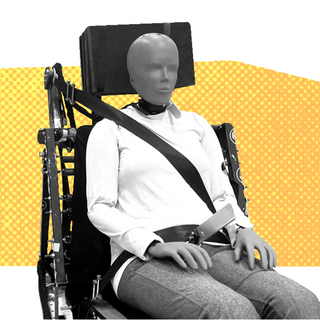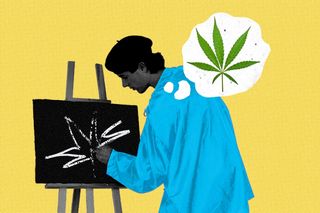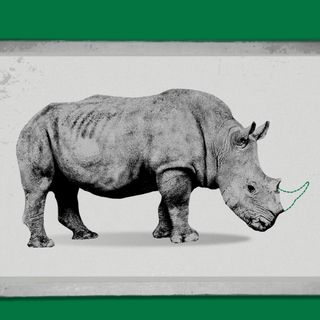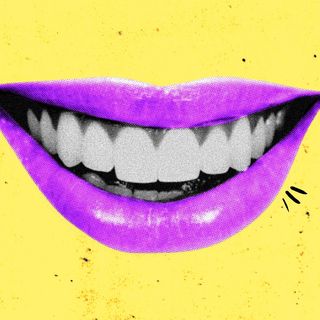
Cannabis Use May Make People Overestimate Their Creativity, Study Finds
Cannabis use didn’t enhance (or reduce) creativity among the participants, but led them to perceive their own ideas as more creative.

“The best way I could describe the effect of the marijuana and hashish is that it would make me relaxed and creative,” Steve Jobs famously remarked in 1988. Over time, the association between cannabis and creativity has almost achieved mythic proportions. But is that all it is — a myth? A new study suggests so.
Published in the Journal of Applied Psychology, the study involved more than 300 participants in the U.S. who were used to consuming cannabis a few times every week. Across different legs of the experiment, the participants were asked to perform certain creative tasks and come up with different creative ideas under the influence of the cannabis they were used to consuming, both in terms of type and quantity. Then, their creativity was evaluated by external judges — subject matter experts and research assistants who were unaware of the experimental conditions — alongside co-participants.
The results indicated that cannabis use neither enhanced nor reduced creativity among the participants. This aligns with past research, which also failed to find evidence of cannabis truly boosting creativity. “Cannabis with low potency does not have any impact on creativity, while highly potent cannabis actually impairs divergent thinking,” noted the authors.
However, the present study found that cannabis use did lead people to perceive not just their own ideas, but also those of their co-participants, as more creative. This is also in line with a survey from 2003, which found that a number of cannabis users attest to the chemical making them more creative.
Related on The Swaddle:
Why People May Be More Creative During Certain Phases of Menstrual Cycles
Researchers in the present study noticed that, compared to the control group, participants who consumed cannabis felt happier. “[They] experienced more joviality — that is, they felt happier, more cheerful, and, simply put, in a better mood — and this led them to evaluate both their own ideas and those of other participants as more creative than sober participants did,” the authors wrote in an editorial breaking down their research on Harvard Business Review (HBR).
In other words, cannabis doesn’t actually boost creativity; it merely tricks people into thinking that it does. So, basically, when Lady Gaga said, “I smoke a lot of pot when I write music,” she wasn’t lying. Neither was Jobs in 1988. They were merely speaking their truths.
However, while cannabis may not directly foster creativity, it might indirectly play a part in people feeling more creative. Studies show that stress can curb creativity by impacting people’s cognitive flexibility and task-switching abilities, and cannabis can help people combat stress, possibly clearing the path for creative processes.
Moreover, research suggests that being in a positive mood can enhance creativity. As the present study noted, cannabis use did put the participants in a positive frame of mind. However, the researchers don’t believe cannabis-induced happiness had any bearing on the participants’ creativity. “[I]n other contexts, joviality can increase creativity, because it makes people more flexible and open-minded. But in our studies, we found that at least when it comes to weed-fueled joy, joviality largely appears just to boost how creative ideas seem — not the ability to produce objectively creative ideas,” they noted in HBR.
Related on The Swaddle:
Why the Exhausting Endurance of the ‘Tortured Artist’ Syndrome Must End
Cannabis use has been associated with a plethora of myths. Perhaps, the most prominent among them is the one about people who smoke pot being “lazy stoners” — a stereotype that was debunked by science, earlier this year.
With increasing research into the impact of cannabis on the human body — probably due to a growing number of countries legalizing its use — it’s likely that our perception of the drug will be largely altered in the coming years.
Meanwhile, the authors of the study do warn against taking their research as the be-all-and-end-all of investigations into the link between cannabis and creativity. “[T]his is still a new and developing science. We would not consider our findings to be the final word,” noted co-author Christopher Barnes, an associate professor of management at the University of Washington Foster School of Business. “Creativity at work across many different contexts is probably much more complex than the relatively simple creativity tasks we used in our two studies. So the effects of cannabis on creativity may very well be more complicated than what we found at this stage in the program of research.”
Irrespective of whether or not cannabis can boost creativity, it is pertinent to remember that cannabis use can, on occasion, have its downsides. For starters, smoking — one of the ways in which marijuana is commonly consumed — is bad for health. In addition, cannabis use can also interfere with other medications that one might be on. As such, unregulated use — especially of non-medical marijuana that may be laced with toxic chemicals like pesticides — is strongly discouraged by experts.
Devrupa Rakshit is an Associate Editor at The Swaddle. She is a lawyer by education, a poet by accident, a painter by shaukh, and autistic by birth. You can find her on Instagram @devruparakshit.
Related


How Human‑led Poaching and Hunting Have Altered Rhinoceros Horns
